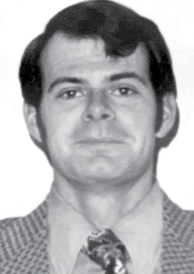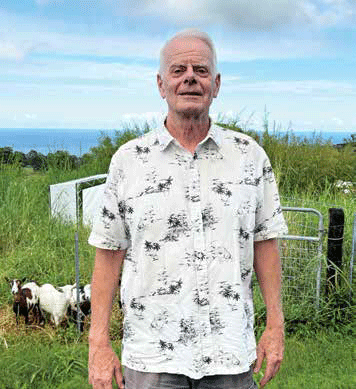 If you were one of the students who commuted to class in the mid to late 1960s, you might have cruised to campus with this alumnus. The son of a Caltech grad, he grew up in Arcadia and followed in his father’s footsteps to pursue a degree at the Institute. In his free time, he was active in the Caltech Y as well as in band and orchestra as a clarinet player.
If you were one of the students who commuted to class in the mid to late 1960s, you might have cruised to campus with this alumnus. The son of a Caltech grad, he grew up in Arcadia and followed in his father’s footsteps to pursue a degree at the Institute. In his free time, he was active in the Caltech Y as well as in band and orchestra as a clarinet player.
“Music was what tied me to other people as a commuter student,” he says. “I ended up making my best friends in music.”
This alumnus put off choosing a career path until graduate school at MIT, where he earned a master’s degree in mechanical engineering and a PhD in fluid mechanics. But he says Caltech’s strong core undergraduate program supported a wide range of options for further study, including a particularly memorable course about the Gwembe Valley Tonga people in Africa, taught by Thayer Scudder, now professor of anthropology, emeritus.
“I absorbed the enthusiasm of renowned professors who were teaching the very best they could,” he recalls. “Such enthusiasm is rare and is made possible in part by Caltech’s smaller size.”
Upon completion of his doctoral studies in turbulence and acoustics, this alumnus returned to sunny Southern California to join General Atomics, a defense technologies company in San Diego, as an engineer. After a long career specializing in fluid flow, heat transfer, and acoustics, he moved to Hawaii in 2003 and became an early digital nomad.

Now in retirement, Tom Burton (BS ’69) gives back to his local community as an organic farmer on the Big Island. Over the years he has sold parcels of his land, which he bought in 1999, to people who have come to work on the farm. On his remaining acreage, he’s started to plant a mix of native forestry and orchards after taking a brief pause from the business.
Burton also gives back to Caltech as a supporter of the Caltech Fund and was inspired to complete his bequest intention after a meeting with President Thomas F. Rosenbaum during which they discussed the importance of financial aid.
“They are really making an effort to reach out to low-income families, and I was impressed by that,” says Burton. “Caltech’s continued efforts to excel in undergraduate education, along with their astronomy and astrophysics program and the Institute for Quantum Information and Matter, are also remarkable.”
He has designated a substantial portion of his estate to Caltech to help support future generations of Techers.
“I think it’s important that, as a default, people contribute to their alma maters, because it spreads the money around,” Burton says. “Plus, there are things that you just can’t get other places.”


